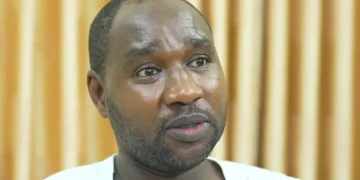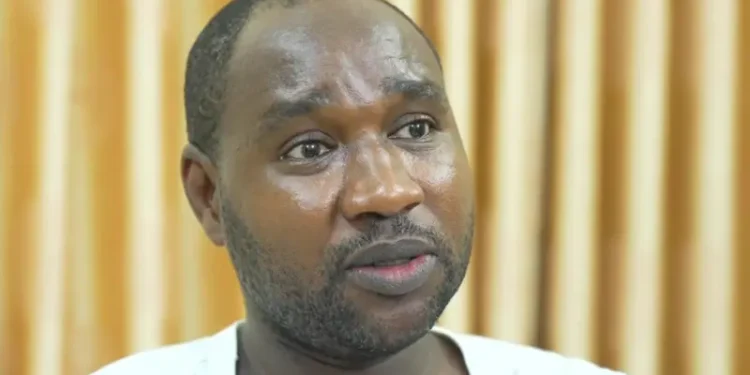A prominent Nigerian atheist has been released from prison after serving over four years for blasphemy. Now residing in a safe house, concerns for his safety persist, according to his legal team.
Mubarak Bala, 40, was sentenced by a court in Kano, northern Nigeria, after unexpectedly pleading guilty to 18 charges linked to a controversial Facebook post he shared in 2020.
“My safety is always a concern,” Bala told the BBC in an exclusive interview as he enjoyed his first meal as a free man.
In Nigeria, a deeply religious country, individuals accused of disrespecting religious beliefs—whether Islamic or Christian—often face discrimination and ostracism. Blasphemy is punishable under Sharia law, which coexists with secular laws in 12 northern states, as well as under Nigeria’s general criminal code.
Bala, who renounced Islam in 2014, admitted that his imprisonment in Kano—a predominantly Muslim city—left him fearing for his life. “I thought I might not survive,” he said, describing the risks posed by both prison guards and fellow inmates.
While his release marks a significant moment, Bala acknowledged the dangers that may still lie ahead. “I’m free, but the threats remain,” he said. “Those years of threats haven’t disappeared.”
Initially sentenced to 24 years in prison, Bala’s term was significantly reduced last year by an appeals court, which deemed the original punishment “excessive.” This ruling eventually led to his release.
Upon walking out of prison in Abuja, the Nigerian capital, Bala appeared both relieved and exhausted. Wearing a white T-shirt, khaki shorts, and flip-flops, he was joined by his jubilant lawyer as he reflected on his newfound freedom. “Everything feels new,” he said.
Bala, a vocal critic of religion, was arrested after a group of lawyers filed a complaint regarding his social media post. He spent two years in detention before his 2022 conviction.
His decision to plead guilty surprised many, including his legal team. However, Bala stands by his choice, stating that it reduced risks for those supporting him, including his friends, family, and legal representatives. “I believe my decision saved not only my life but also others in Kano connected to my case,” he explained. “They became targets as well.”
The conviction drew widespread condemnation from international human rights organizations and sparked a heated debate about freedom of expression in Nigeria. Bala’s detention also had a significant impact on Nigeria’s small atheist and humanist communities. While his release is welcomed, concerns about his safety persist.
Leo Igwe, founder of the Humanist Association of Nigeria, expressed both relief and frustration. “We’re grateful he’s free, but it’s disappointing he was treated like a criminal. In our view, he did nothing wrong,” Igwe said.
As Bala begins rebuilding his life, he is eager to reconnect with his son, who was just six weeks old when he was imprisoned. Despite his ordeal, Bala remains unwavering in his beliefs. “I knew the risks when I decided to speak out. I understood the dangers, but I made my choice anyway,” he said.














